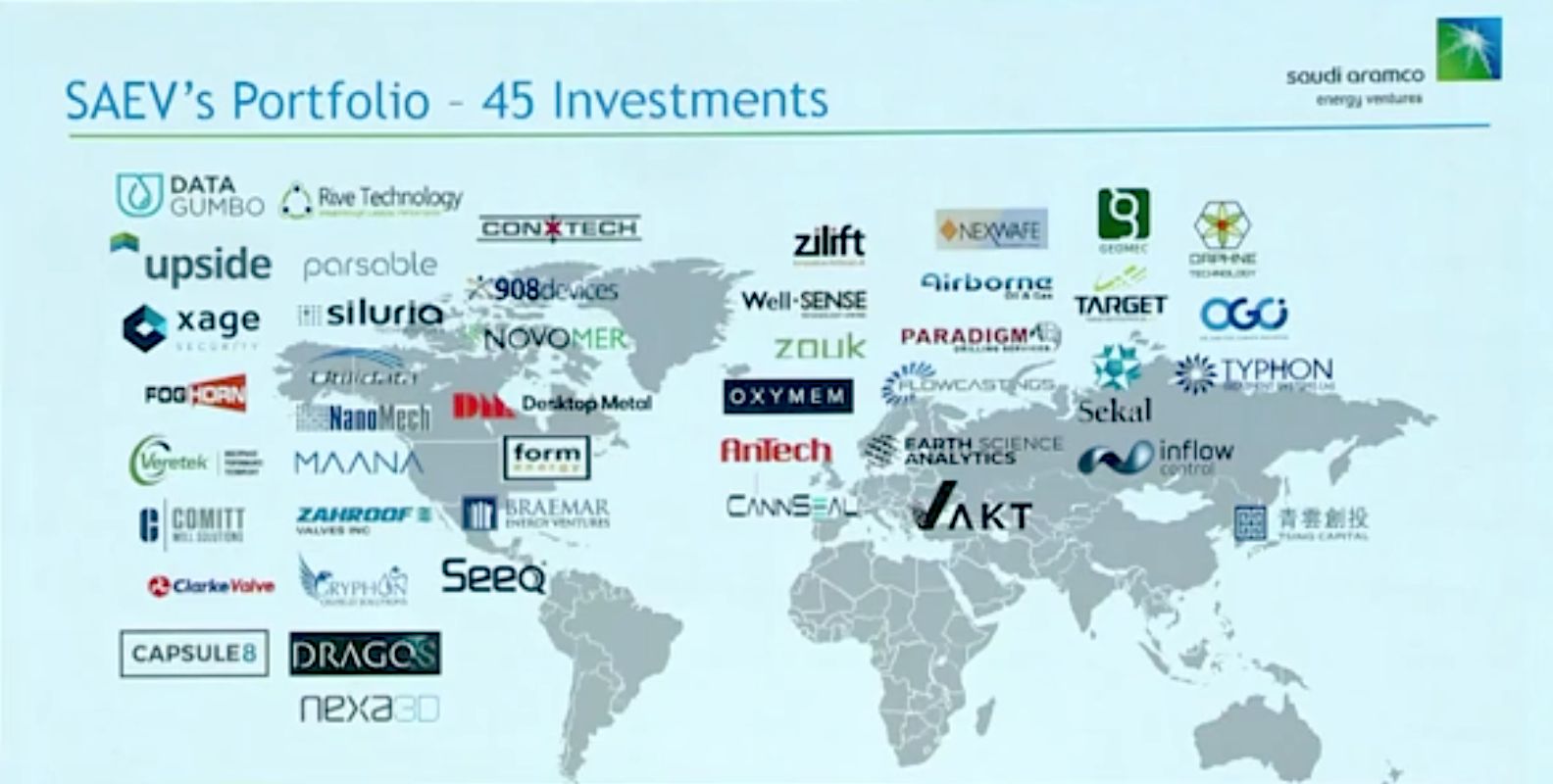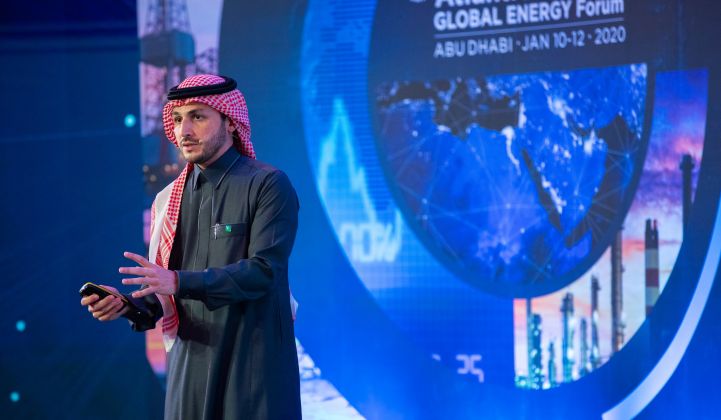ABU DHABI — Saudi Aramco’s corporate venture capital arm is preparing to launch a new $500 million fund to invest in energy efficiency and renewable energy solutions as well as new oil and gas technologies.
Saudi Aramco Energy Ventures (SAEV), a subsidiary of the kingdom’s state-owned oil producer, has also opened an office in Beijing and plans to scale up its presence in that country, CEO Majid Mufti said on the sidelines of the Atlantic Council Global Energy Forum in Abu Dhabi on Saturday. SAEV currently has offices in Houston, Boston, Aberdeen, Norway and London.
The Aramco venture fund launched in 2012 with a $500 million budget to invest in startups across the globe. Over the past seven years, SAEV has made a total of 45 investments out of that fund, predominantly in the U.S. and Europe, said Mufti.
Cleantech companies supported by SAEV include long-duration energy storage startup Form Energy, which drew additional investment recently from Italian oil group Eni; high-efficiency monocrystalline silicon wafer manufacturer NexWafe GmbH; and energy optimization software startup Utilidata.
The fund has also invested in several water treatment startups and marine emissions control firm Daphne Technology.
Mufti told UAE-based newspaper The National that the new $400 million to $500 million fund would adopt "the same strategy...on the sustainability side.”

Source: Saudi Aramco Energy Ventures
Capturing carbon from vehicles
Mufti said that Aramco is now looking to boost investments in hydrogen supplies and carbon capture. “Carbon capture in mobility is a key theme for us,” he said in a presentation at the energy forum, where he touted Aramco’s internal program focused on capturing emissions from heavy-duty vehicles. Aramco claims that its technology is capable of capturing 45 percent of vehicle emissions in a laboratory setting.
The state-owned oil company unveiled its Class 8 heavy-duty truck equipped with a mobile carbon capture system for the first time last month at the SAE Innovations in Mobility conference outside of Detroit. The vehicle will soon begin road tests to measure the technology’s carbon-capture rate in the real world.
International and national oil companies have a unique role to play in advancing new clean energy technologies, according to Mufti.
“Money is fungible. Corporates bring not only brand equity but [also] the ability to pilot and deploy technologies in our systems where engineers can tweak the product for customers,” he said. “That raises the value of that company and ergo the value of your investment as well.”
Mufti noted in the sideline interview that the challenge for big oil and gas firms is finding the right deals at the startup level.
“We wanted to do this,” Mufti said of launching the venture capital fund. “The only thing we were worried about is: Can we do it right?”
In addition to investing directly in technology companies, SAEV has also invested in Zouk, a European equity fund focused on cleantech startups, which has funded companies such as Off Grid Electric and British electric vehicle infrastructure firm EO Charging. In backing Zouk, the corporate venture capital arm gained access to a space where Aramco has little expertise.
When it comes to cleaning up the oil and gas sector, Mufti said the industry is likely to adopt an “ecosystem investment model," where investments are designed to increase demand for the investor's core product. This approach has been adopted most notably by Intel, said Mufti, which has invested in gaming companies in order to create demand for its microprocessors.
“As we talk about sustainability in oil and gas, you’ll see a lot more of the strategy starting to shift to ecosystem venturing in order for us to sustain our businesses,” he said.




